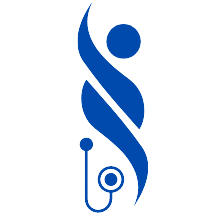Pharmacology plays a crucial role in the field of medicine, serving as the foundation for diagnosing and treating various medical conditions. Understanding the basics of pharmacology is essential for healthcare professionals and patients alike, as it encompasses a wide range of topics, including diagnosis, treatment, symptoms, and causes of illnesses. In this article, we will explore the fundamentals of pharmacology, from the process of diagnosing and treating medical conditions to understanding the symptoms and causes of common ailments. By delving into these key areas, we aim to provide a comprehensive guide to pharmacology that will help readers better grasp the complexities of medical treatment strategies.
1. Understanding the Fundamentals of Pharmacology: Diagnosis and Treatment
Pharmacology is the study of how drugs interact with the body to treat diseases and improve health. One of the fundamental aspects of pharmacology is the diagnosis and treatment of medical conditions.
Diagnosis is the process of identifying a disease or condition based on the symptoms and signs present in a patient. This often involves a medical history, physical examination, and sometimes laboratory tests or imaging studies. Once a diagnosis is made, the next step is treatment.
Treatment in pharmacology involves the use of drugs to alleviate symptoms, cure diseases, or manage chronic conditions. The goal of treatment is to improve the patient’s quality of life and overall health. Pharmacological treatment can vary depending on the specific condition being treated and may include medications, such as antibiotics, pain relievers, or blood pressure medications.
It is important for healthcare providers to have a thorough understanding of pharmacology in order to properly diagnose and treat their patients. This includes knowledge of how drugs work in the body, potential side effects and interactions, and appropriate dosages for different patient populations.
In conclusion, understanding the fundamentals of pharmacology is essential for effective diagnosis and treatment of medical conditions. Healthcare providers must have a solid grasp of pharmacological principles in order to provide the best possible care for their patients.
2. Exploring the Symptoms and Causes of Common Medical Conditions
When it comes to understanding common medical conditions, it is important to explore both the symptoms and causes in order to properly diagnose and treat the issue. Symptoms are the physical or mental manifestations of a medical condition that a patient may experience. These can vary greatly depending on the specific condition, but some common symptoms include pain, fever, fatigue, and changes in appetite or weight.
In order to effectively treat a medical condition, it is essential to identify the underlying causes. Causes can range from genetic factors to environmental influences, and understanding them can help healthcare professionals develop a targeted treatment plan. For example, the cause of a bacterial infection may require a course of antibiotics, while the cause of a chronic condition like diabetes may necessitate lifestyle changes and medication management.
By exploring both the symptoms and causes of common medical conditions, healthcare providers can work towards providing patients with the most effective and personalized care. This comprehensive approach is essential in the field of pharmacology, as it allows for the development of tailored treatment plans that address the root cause of a patient’s medical issues.
3. A Comprehensive Guide to Pharmacology: From Diagnosis to Treatment Strategies
Pharmacology plays a crucial role in the field of medicine, as it involves the study of drugs and their effects on the body. From diagnosing illnesses to prescribing appropriate treatment options, pharmacology is essential in ensuring patient well-being. This comprehensive guide to pharmacology will explore the various aspects of this discipline, from diagnosis to treatment strategies.
Diagnosis is the first step in determining the underlying cause of a patient’s symptoms. Healthcare professionals use a combination of medical history, physical examinations, and diagnostic tests to identify the specific condition affecting an individual. Pharmacology comes into play during the diagnostic process, as certain drugs may be used to confirm or rule out a particular diagnosis. For example, blood tests may be used to measure the levels of certain medications in the body, providing valuable information to healthcare providers.
Once a diagnosis has been made, the next step is developing a treatment plan. Pharmacology is instrumental in this process, as it involves the use of medications to alleviate symptoms, manage conditions, and improve overall health. Treatment strategies may vary depending on the specific diagnosis, with healthcare providers prescribing drugs that target the underlying cause of the illness. Pharmacological interventions can range from antibiotics to treat infections, to pain relievers for managing chronic pain, to chemotherapy drugs for cancer treatment.
In addition to prescribing medications, healthcare professionals must also consider factors such as drug interactions, side effects, and patient adherence to treatment regimens. Pharmacology provides valuable insights into how different drugs interact with each other and the body, helping healthcare providers make informed decisions about treatment options. Monitoring for adverse reactions and adjusting medication dosages as needed are essential components of pharmacological care.
In conclusion, pharmacology is a vital component of modern medicine, encompassing everything from diagnosis to treatment strategies. By understanding the principles of pharmacology, healthcare professionals can effectively diagnose illnesses, prescribe appropriate medications, and monitor patient progress. A comprehensive guide to pharmacology is essential for ensuring the safe and effective use of drugs in healthcare settings.

